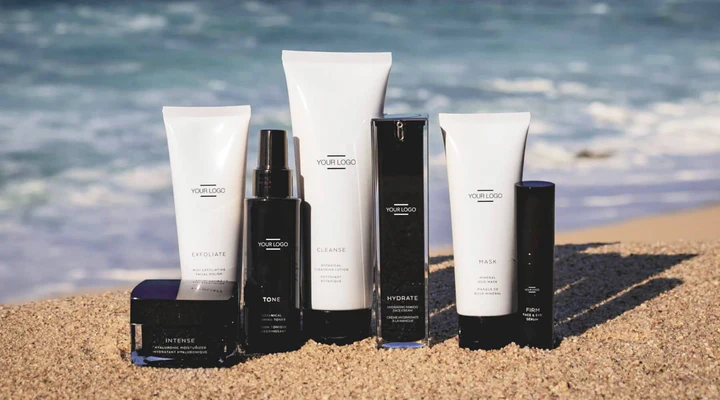
In the competitive world of skincare, branding plays a crucial role in distinguishing your products from countless others. If you’re venturing into the private label medical grade skin care industry, having a strong brand identity is essential to attract and retain customers. This guide will help you understand the importance of branding in skincare, especially for businesses focusing on private label skincare in the USA. We’ll also explore the significance of Premium Packaging For Skin Care Products and how it complements your brand strategy.
Understanding Private Label Medical Grade Skin Care
What is Private Label Skincare?
Private label skincare involves manufacturing products that are sold under your brand name but are produced by another company. It allows businesses to create their own unique skincare line without investing heavily in production facilities or research and development.
Why Choose Medical Grade Skin Care?
Medical grade skin care products offer more potent formulations with higher concentrations of active ingredients compared to over-the-counter products. They are often scientifically backed and target specific skin conditions, making them highly effective and appealing to consumers seeking professional-grade solutions.
Benefits of Private Label Medical Grade Skin Care
- Customization: Tailor products to meet the specific needs of your target audience.
- Brand Identity: Develop a unique brand that resonates with your audience’s values and preferences.
- Cost-Effectiveness: Minimize initial investment by leveraging an established manufacturer’s expertise and infrastructure.
- Speed to Market: Launch products faster without the delays associated with in-house development and production.
Building Your Brand Identity
Define Your Brand’s Mission and Values
Your brand’s mission and values form the foundation of your identity. Clearly articulate what your brand stands for, why it exists, and how it aims to improve the lives of your customers. For example, if sustainability is a core value, emphasize eco-friendly practices in your branding and product offerings.
Identify Your Target Audience
Understanding your target audience is crucial for effective branding. Are you catering to young professionals seeking anti-aging solutions, or individuals with sensitive skin in need of gentle formulations? Conduct market research to identify the demographics, preferences, and pain points of your ideal customers.
Craft a Compelling Brand Story
A compelling brand story humanizes your business and establishes an emotional connection with consumers. Share your journey, the inspiration behind your products, and the impact you aim to create. Authentic storytelling fosters trust and loyalty among your audience.
Develop a Distinctive Visual Identity
Visual identity includes your logo, color palette, typography, and overall design aesthetics. These elements should align with your brand’s personality and resonate with your target audience. Consistency in design across all touchpoints reinforces brand recognition and recall.
Private Label Skincare in the USA
Exploring the US Skincare Market
The US skincare market is vast and diverse, offering opportunities for growth and innovation. With consumers increasingly prioritizing wellness and self-care, the demand for effective skincare solutions continues to rise.
Key Considerations for Private Label Skincare in the USA
- Regulatory Compliance: Ensure your products adhere to FDA regulations and safety standards.
- Quality Control: Partner with reputable manufacturers who maintain high-quality production standards.
- Market Trends: Stay informed about emerging trends and consumer preferences to remain competitive.
The Importance of Premium Packaging for Products
Creating a Memorable Unboxing Experience
Premium packaging elevates the perceived value of your products and enhances the overall customer experience. Investing in high-quality materials and thoughtful design creates a memorable unboxing experience that leaves a lasting impression.
Reflecting Brand Values Through Packaging
Your packaging should reflect your brand’s values and aesthetics. For example, if sustainability is important, opt for eco-friendly materials and minimalistic designs. Packaging is an extension of your brand identity and should communicate your commitment to quality and integrity.
Customization and Personalization
Custom skincare packaging allows you to tailor designs to align with your brand’s unique identity. Consider incorporating personalized elements such as thank-you notes or QR codes that direct customers to exclusive content or offers.
Functionality and Practicality
While aesthetics are important, packaging must also be functional and practical. Ensure that your products are well-protected during transit and easy to use for consumers. User-friendly packaging enhances the overall customer experience and encourages repeat purchases.
Conclusion
In the competitive skincare industry, effective branding is essential for success. By focusing on private label medical grade skin care, leveraging the opportunities in the USA market, and prioritizing premium packaging for products, you can create a compelling and memorable brand that resonates with your target audience. Remember that branding is an ongoing process that requires continuous refinement and adaptation to stay relevant and competitive.

